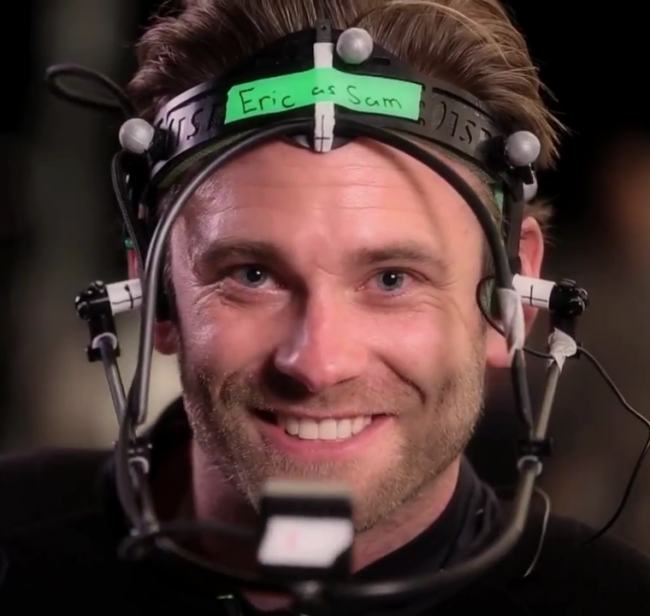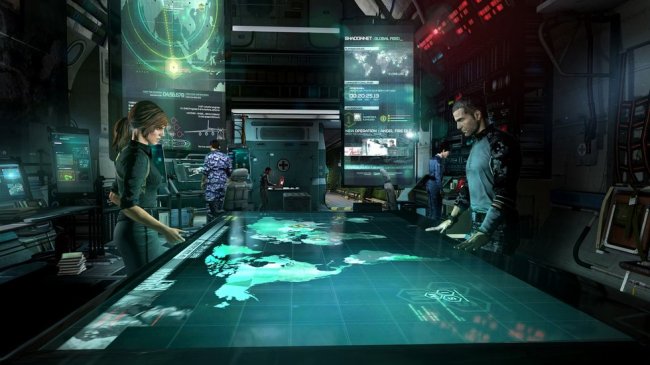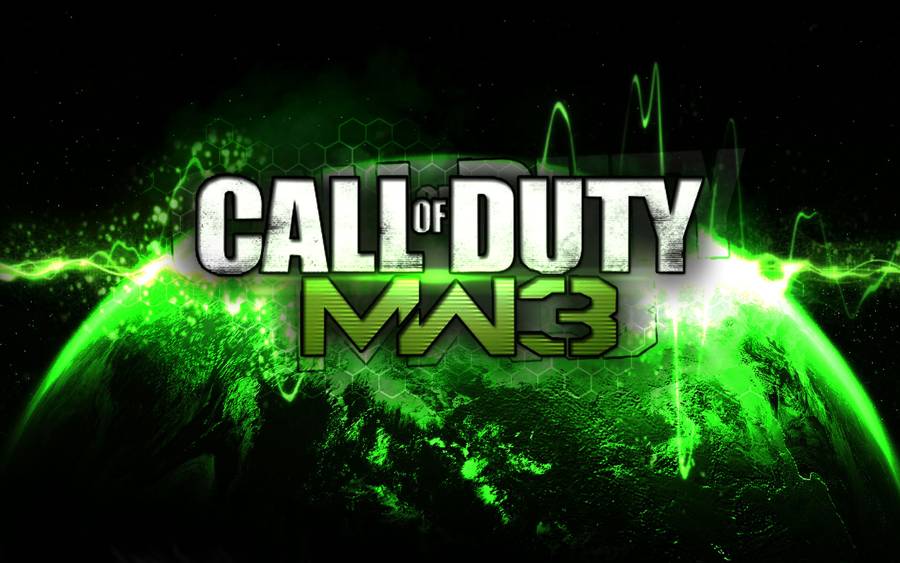

During a recent trip to Toronto to see Splinter Cell: Blacklist at the Ubisoft's new studio, we were given a tour of the facilities. During that tour we checked out the motion-capture studio being used in the creation of the game.
While we were there checking out the impressive new surroundings, we were able to grab five minutes with Eric Johnson, the actor faced with unenviable task of walking in the footsteps on Michael Ironside and playing Splinter Cell's protagonist, Sam Fisher.
So this is your first Splinter Cell game, you've got some pretty big shoes to fill.
Eric:They're big shoes.
Have you been working with Mr Ironside?
He was able to come up, which was fantastic, and you know so much of what Splinter Cell is because of what Michael brought to the character, and brought to the project. That's really clear in the games, you play the games and see his sort of essence and what he is.
So getting to have those conversations with him about the character, the game, what it all meant for him, what worked for him, what was frustrating for him, and how to move that forward, and how to take that into a new story, a new game, a new environment, a new technical way of doing it, was invaluable. Those are the big shoes, so you want to have as much input from the guy who's been wearing them for a decade as possible.

At the same time, how did you make sure you were able to stamp your own authority on the role?
The analogy I use is it's like, I see it as being like a new James Bond. Every ten to fifteen years you get a new James Bond. And there are certain things that are congruent to James Bond all through everything he's been in, but each person, each actor has brought a unique spin to it, and it's sort of what they're personality is, what their physicality is, that makes it unique. But the totems of what James Bond is you get in every movie. So that's sort of similar to what we've done here.
The great thing about Sam Fisher is his wit, his dry humour, his sarcasm that comes in, his gruffness at times, he's deadpan in the face of absolute insanity; it's all there, it's still Splinter Cell. It's just delivered by a different voice, by a different body. There was nothing from me saying: "this is how I'm going to do it to differentiate myself". Every thought I had was about how do I service this script, how do I service this story, it was never about me making my mark on this. It was about putting the project first, and remembering where it's come from as well.
It seems like you've got quite a lot of freedom in rehearsals and in filming. What is it like working in this environment, rather than the more traditional filming?
It's interesting because [motion capture] really is a hybrid, because it's super technical, but at the same time completely free. So it's like doing film and theatre at the same time, because you're allowed to move in the environment naturally, because they can put the camera anywhere. And you're shooting 360 degrees of everything, at all times in motion capture, so there's tremendous freedom in that.
It becomes really natural, it becomes instinctual. Which just ups the realism of everything. That I was surprised by. You know, not having done motion capture before, I didn't realise how free it was as a performance. And once you learn all of the technical sides and got used to that it was a really rewarding experience, which again I hadn't anticipated before we started doing it.
You mentioned theatre, do you think that this could be considered more like theatre because of the investment you ask for from your audience?
Absolutely, I think you touched on it right there. I mean you're asking people, if you're going to finish a game, they're going to be spending 60-100 hours with you, and so there's a huge investment from your audience. When you're performing, as you see behind you [the recording studio in Toronto] our Strategic Mission Interface - the be all and end all of technology in the modern day - is made of chicken wire two-by-fours. So the level of imagination and commitment that we have to have, is like what you have to have in theatre, because these things are our stage.
The studio has got a black box theatre feel to it...
It really has. That's the best way to describe it, and you're only really limited by your imagination. So we really commit to that, and that really gives the animators incredible tools and they then put that world around us, and it's easy to get immersed in.
From everything we've seen so far, it looks like Johnson is going to do a fine job of playing Sam Fisher. Yes we're saying goodbye to the unmistakable voice of Michael Ironside, but his replacement seems more than capable of filling the void. Ubisoft are really pushing the boundaries with the work being done in their motion-capture studio, and I think we're really going to see the benefit of their efforts when Blacklist finally arrives next month.

Splinter Cell: Blacklist is set to launch on Playstation 3, Xbox 360 and PC on August 22. We got hands-on with the game in Toronto, and you can read about that in the latest issue of Gamereactor Magazine, or for our most recent preview, head this way.



